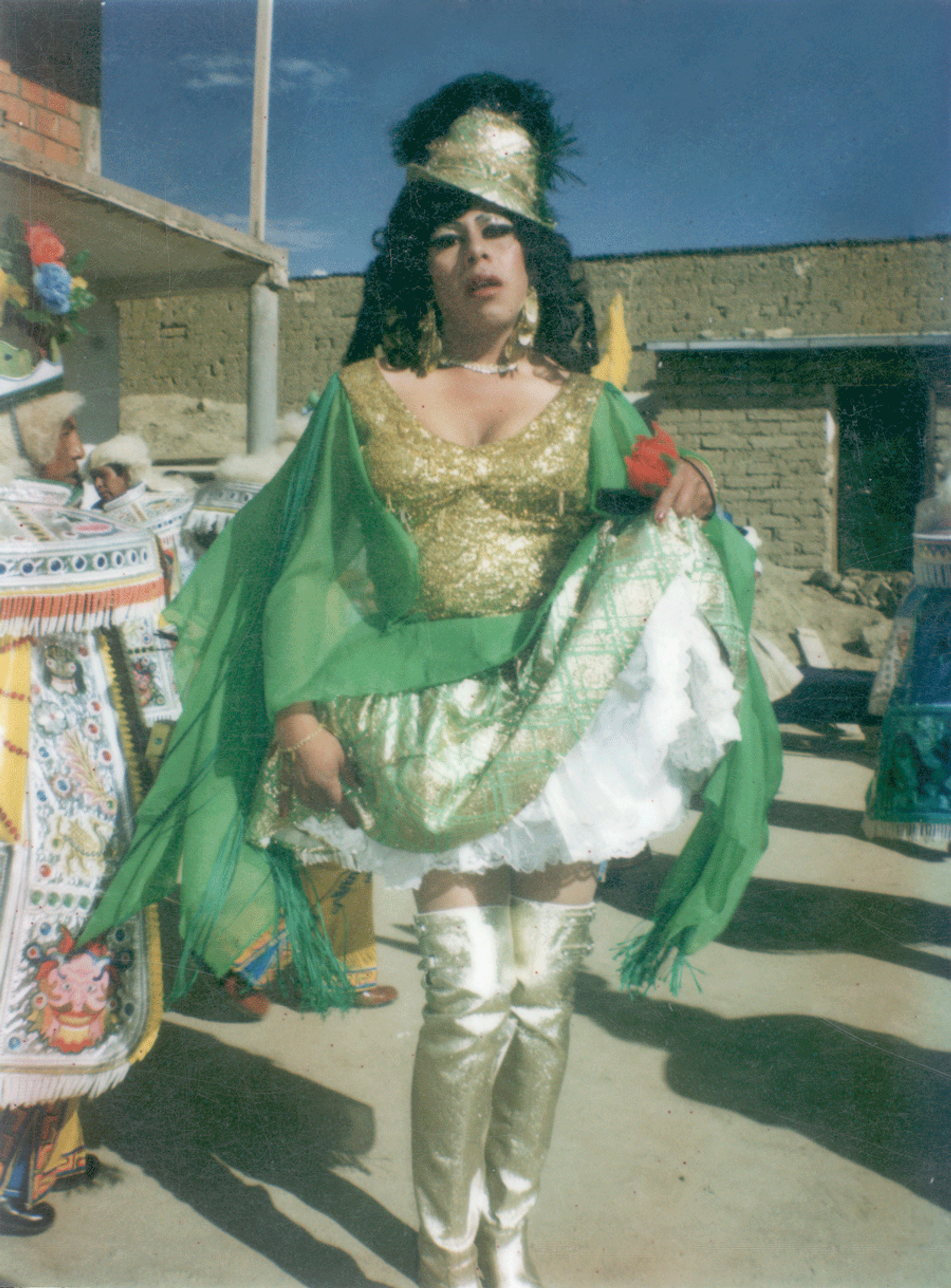As a culture war around issues of trans and gender-nonconforming identities rages on, an archival exhibition in Bethnal Green, east London, highlights how queer communities around the world have been placed at the forefront plane of politics for decades and played a central role in resistance movements.
Barbarella’s kiss (until June 11), at curator-favorite nonprofit space Auto Italia South East, examines the work of Bolivian artist and queer activist David Aruquipa Pérez, who has amassed a collection of photographs from his transvestite friends (a Latin American-specific term for gender non-conforming people assigned male at birth) performing at carnivals from the 1960s to the 1980s. Many of them embody the character of China Morena, a flamboyantly dressed female figure popular in Bolivian carnivals, and who, according to Pérez, was born out of trans communities.
“Parades are catwalks – fashions dictate those of normal society and China Morena is hugely influential,” Pérez said shortly before the opening of the show, for which he transformed into China Morena, dressed in a bright red dress, and performed a dance accompanied by a soundtrack of historical carnival recordings to “invoke her sisters dead and alive”.

by David Aruquipa Perez Lucha (Luis Vela) at a rural festival, La Paz, Bolivia, ch. (1973) color photography
Courtesy of the artist and Diversidad – Comunidad de Investigación Acción en Derechos y Ciudadanía
The exhibition takes its title from an incident – of which no photographic evidence exists – in which transvestite Barbarella kissed Bolivian dictator Hugo Banzer Suárez at a carnival in 1974. Humiliated and enraged, Banzer banned transvestites to happen and drove them into hiding. But in doing so, it also served to highlight their subversive role in the wider resistance movement that would overthrow his military rule in 1978.
“Barbarella’s kiss is a document about the struggle of sexually and gender diverse people for fair and equitable inclusion in culture and society,” says Auto Italia director Edward Gillman. It connects the show’s themes to the ongoing fight for the liberation of trans and gender non-conforming people in the UK. “The exhibition proves that gender diversity is rich and kaleidoscopic, and that human experience encompasses a complex range of live gender experiences – more than the mainstream politico-religious right in the UK would have us believe. all.”
Pérez, who co-curated the exhibition with artist Aitor González, highlights how carnivals are at the heart of Bolivian society. “To be visible in the carnival is to participate in society, everyone is watching you. And when your presence is forbidden, the simple act of gathering becomes an act of resistance.”
The simultaneous repression and hyper-visibility that trans and queer people so often face was addressed in a talk at the exhibition, for the launch event of Viscose-a fashion theory magazine which devoted its fourth issue to transit issues in fashion. “Dressing up is a public act,” says Viscose founder Jeppe Ugelvig, “and the images of Chinas Morenas, as well as this current issue of the magazine, underscore how gender non-conforming people have long been at the forefront of politics,” he says, adding that ‘you always have to look to the fringes and the underside of society to properly observe how fashion and power interact.
Viscose The trans issue contains a number of historical archival articles that show, among other things, how attitudes towards gender identity have become in some ways more, not less, reactionary over time. It reminds us that the paths to freedom, both social and legal, are not always linear, nor geographically compartmentalised. But while it’s troubling that something as innocuous as a piece of clothing can still cleave a nation’s politics, there’s also power in remembering that wearing a dress can help bring down a dictatorship. .
